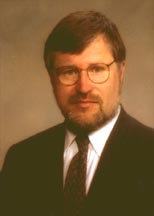Protest marches, campus teach-ins, flag dissing. It's like one big anti-Vietnam war reunion. On university campuses, Marxist professors, their still-long hair gray now but pulled into a ponytail, have come out of their bunkers and have dusted off their old lecture notes about "American Imperialism" and the war-mongering effects of "global capitalism."
Movie stars, rock musicians, and even the loose organization of poets are condemning the war with Iraq even before there is one, and taking the opportunity to bash American civilization just like they did in the glory days of the '60s counterculture.
There are many legitimate arguments against war with Iraq. Pragmatists worry that invading Iraq is not necessary, that other tactics might achieve the desired results, at far less cost. Isolationists believe that the United States has no business becoming entangled with the problems of these other countries. Pacifists oppose all war for any reason. These positions deserve their say.
But these arguments, though they sometimes can be heard at the protests, are not what the growing anti-war movement is all about. Talk to a campus anti-war activist and you are likely to hear not disagreements about U.S. foreign policy but anti-American hysteria: "George Bush is the world's No. 1 terrorist." "George Bush is worse than Saddam Hussein." "This is a war for oil." "America needs to destroy its weapons of mass destruction." In their view, America, secretly controlled by multinational oil corporations, is trying to conquer the world.
When asked about Saddam Hussein's record of mass murder, torture, oppression, and chemical and biological weapons, many activists just don't believe it. That is just American propaganda. Iraq's propaganda, though, they accept as gospel truth. Many anti-war activists are more willing to believe Saddam Hussein than George Bush. Some go so far as to defend, or even claim solidarity with, the Islamic terrorists who attacked the World Trade Center and the Pentagon, "those symbols of American capitalism and military aggression."
We now know that the Vietnam War protests were at first organized by hard-core Communist and pro-Communist organizations, whereupon the peace-and-love flower children, idealistic university students, and mainline journalists and politicians got on board the peace train. In the same manner, the recent mass anti-war rallies were organized by a coalition of radical socialist organizations that goes by the acronym A.N.S.W.E.R. ("Act Now to Stop War and End Racism"). But they have brought on board hoards of less-ideological and less-extreme folks, who attend their rallies for their own reasons but who unintentionally multiply A.N.S.W.E.R.'s clout.
Radicals used to put their hope in revolution, but in the post-Soviet era, the radical left has shifted to the advice of Marxist theorist Antonio Gramsci: Take over the culture. This can be done by shaping the way people think, their values and worldview. In this, the arts are more powerful than politics. Fashion is more persuasive than arguments. And whoever can define what is "cool" can control the masses.
Despite their huge impact in the '60s, leftist radicals went out of style. Ronald Reagan, the collapse of the Soviet Union, and the booming stock market made them irrelevant. But now they are trying for a comeback.
What is the attraction? Why is it that leftist causes can become so fashionable? Why are the "cool people"—the cultural trendsetters, the fashionistas, the icons of popularity—rallying to the cause?
We are now subject to moralizing lectures from movie stars and rock musicians, individuals not normally considered to be role models of moral rectitude. On campuses, the usual group of radicals are adopting a tone of high moral indignation in scolding America for its ethical shortcomings.
Those who reject morality in their own lives often project their conscience out onto the periphery of their experience. They take righteous stands on political issues and embrace idealistic ideologies, as a compensation for the moral failures and guilt in their personal lives. They reject personal morality but believe in social morality. Holding the right political beliefs enables them to feel self-righteousness, without the trouble of actually being righteous.
Conservatives, as well as liberals, can fall into this spiritual trap. This is evident among those conservative politicians who were "pro-family" in their voting record while committing adultery in their personal lives. Genuine morality, of course, has both a personal and social dimension. Furthermore, Christians know that self-righteousness of every kind is a spiritual delusion that shuts out the need for Christ's forgiveness.
